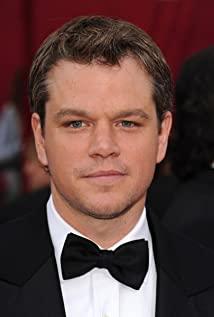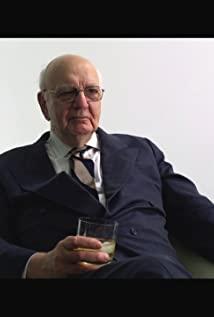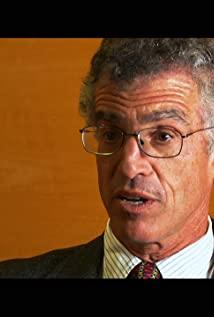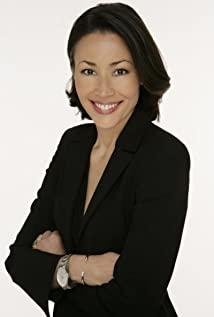-
Christine Lagarde: The financial industry is a service industry. It should serve others before it serves itself.
-
Christine Lagarde: And l clearly remember telling Hank: 'We are watching this tsunami coming, and you're just proposing that we ask: "which swimming costume we're going to put on."'
interviewer: What was his response? What was his feeling?
Christine Lagarde: 'Things are under control. Yes, we are looking at this situation carefully, and, yeah, it's under control.'
-
Henry Paulson: We're gonna keep growing. Okay? And, obviously, I'll say it: 'If you're growing, you're not in recession, right? I mean, we all know that.'
-
Robert Gnaizda: Addressing Obama and, quote, 'regulatory reform' - my response, if it was one word, would be 'ha!' There's very little reform... It's a Wall Street government.
-
George Soros: Chuck Prince of Citibank famously said: 'That we have to dance until the music stops.' Actually, the music had stopped already when he said that.
-
Andrew Sheng: Why should a financial engineer be paid four times to 100 times more than a real engineer? A real engineer build bridges. A financial engineer build dreams. And, you know, when those dreams turn out to be nightmares, other people pay for it
-
Frank Partnoy: You're gonna make an extra $2 million a year, or $10 million a year for putting your financial institution at risk. Someone else pays the bill, you don't. Would you make that bet? Most people on Wall Street said, 'Sure, I'd make that bet.'
-
Narrator: For the first time in history, average Americans have less education and are less prosperous than their parents.
-
Michael Capuano: You come to us today telling us "We're sorry. We won't do it again. Trust us". Well I have some people in my constituency that actually robbed some of your banks, and they say the same thing.
-
Willem Buiter: Why do you have big banks? Well, because banks like monopoly power; because banks like lobbying power; because, banks know that when they're too big, they will be bailed.
-
Charles Morris: I had a friend who was a bond trader at Merrill Lynch in the 1970s. He had a job as a train conductor at night, 'cause he had three kids and couldn't support them on what a bond trader made. By 1986, he was making millions of dollars, and thought it was because he was smart.
-
Andrew Lo: Recently, neuroscientists have done experiments where they've taken individuals and put them into an MRI machine. And they have them play a game where the prize is money. And they noticed that when these subjects earn money, the part of the brain that gets stimulated is the same part that cocaine stimulates.
-
[last lines]
Narrator: For decades the American financial system was stable and safe. But then something changed. The financial industry turned its back on society, corrupted our political system and plunged the world economy into crisis. At enormous cost, we've avoided disaster and are recovering. But the men and institutions that caused the crisis are still in power and that needs to change. They will tell us that we need them and that what they do is too complicated for us to understand. They will tell us it won't happen again. They will spend billions fighting reform. It won't be easy. But some things are worth fighting for.
-
David McCormick: [not knowing how to answer the interviewer] Could we... could we turn this off for a second?
-
R. Glenn Hubbard: [annoyed with the interviewer] This isn't a deposition, sir. I was polite enough to give you time, foolishly I now see. But you have three more minutes. Give it your best shot!
-
Narrator: Between 1998 and 2008 the financial industry spent over $5 billion on lobbying and campaign contributions. And since the crisis, they're spending even more.
-
Narrator: The financial industry also exerts its influence in a more subtle way, one that most Americans don't know about: It has corrupted the study of economics itself.
-
title card: The presidents of Harvard University and Columbia University refused to comment on academic conflicts of interest. - Both declined to be interviewed for this film.
-
interviewer: On your CV the title of this report has been changed from "Financial Stability in Iceland" to "Financial *In*stability in Iceland."
Frederic Mishkin: Um, well, I don't know. Er, which, er whatever it is, is - the thing - if there's a typo, there's a typo.
-
Nouriel Roubini: By 2006, about 40% of all profits of S&P 500 firms was coming from financial institutions.
-
Narrator: Inequality of wealth in the United States is now higher than in any other developed country.
-
George W. Bush: When I first came to office, I thought taxes were too high, and they were.
-
Narrator: The Bush administration sharply reduced taxes on investment gains, stock dividends and eliminated the estate tax.
-
George W. Bush: We had a comprehensive plan that, when enacted, has left nearly $1.1 trillion in the hands of American workers, families, investors and small-business owners.
Narrator: Most of the benefits of these tax cuts went to the wealthiest 1% of Americans.
-
Narrator: After the crisis, the financial industry, including the Financial Services Roundtable, worked harder than ever to fight reform. The financial sector employs 3,000 lobbyists, more than five for each member of Congress.
-
George W. Bush: You don't have to have a lousy home. The low-income home buyer can have just as nice a house as anybody else.
Inside Job Quotes
Extended Reading











